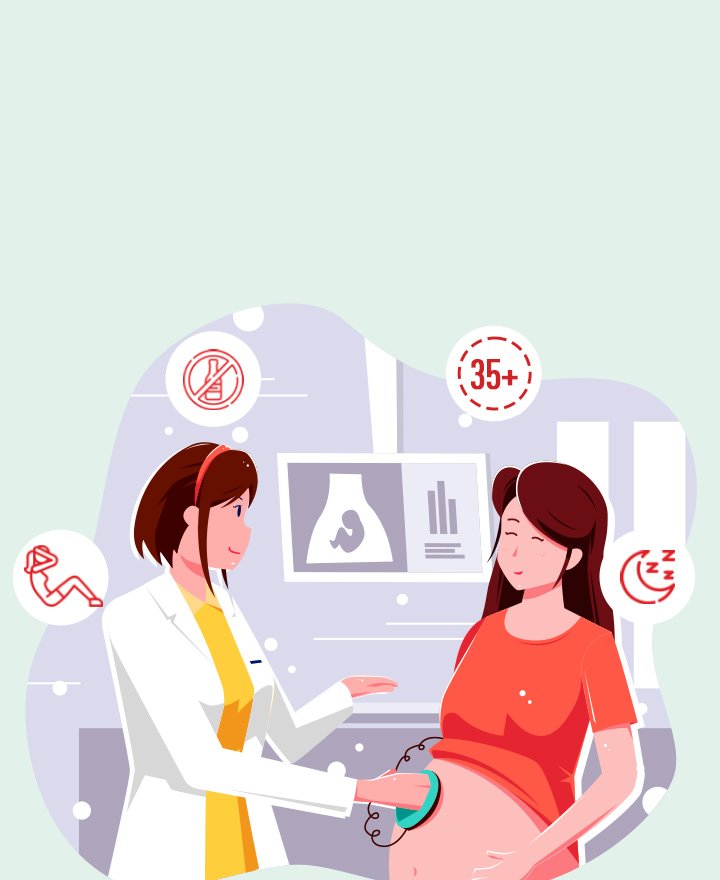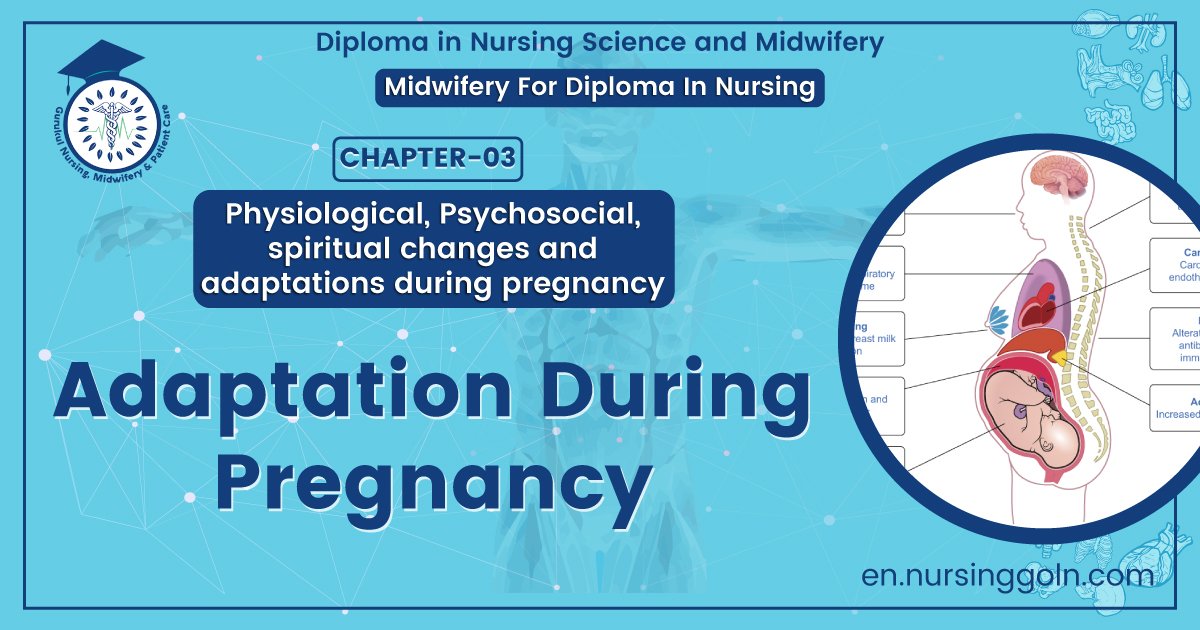Adaptation during pregnancy – This course is designed to understand the care of pregnant women and newborn: antenatal, intra-natal and postnatal; breast feeding, family planning, newborn care and ethical issues, The aim of the course is to acquire knowledge and develop competencies regarding midwifery, complicated labour and newborn care including family planning.
Adaptation during pregnancy
Adaptation
Adaptation’ means ‘adjustment”. Every living being needs to adapt to its environment, especially the newer environment, so does the newborn.
Adaptation during pregnancy:
Maternal physiological changes in pregnancy are the normal adaptations that a woman undergoes during pregnancy to better accommodate the embryo or fetus. The body must change its physiological and homeostatic mechanisms in pregnancyto ensure the fetus is provided for.

Major Adaptations for Extra uterine Life:
A. In pulmonary system
B. In cardiovascular system
C. In controlling body’s temperature/Thermoregulation
D. Also, the immune system faces lots of challenges
A. In pulmonary system:
➤ Before birth, maternal lungs and the placenta do the gas exchange for the fetus.
➤ After birth, lungs of the newborn take up the total pulmonary function.
➤ Thus the fetal lungs acquire adequate number of alveoli and produce surfactant.
B. In cardiovascular system:
➤ Prior to birth, the fetus relies solely on the placenta for all gas exchanges and excretion of metabolic waste.
➤ Separated from the placenta at birth, the baby’s circulatory system must divert deoxygenated blood to the lungs for reoxygenation. This involves several mechanisms.
C. Thermoregulation in newborn:
➤ By ‘brown fat’ which uses up to three times oxygen as other tissue. As a result, there is diversion of oxygen and glucose from vital centres such as brain and cardiac muscle
➤ Also cold stress causes vasoconstriction leading to reduced pulmonary perfusion.
➤ Undesired biochemical effects and respiratory distress exhibited by tachypnoea is resulted due to cold stress
[Ref by-DC Dutta 9th & lecture]

Psychological adaptation during pregnancy:
A. Maternal Emotional Responses to Change in body image:
➤ Varies from person to person
➤ Some feel beautiful
➤ Some feel overweight & uncomfortable
B. Maternal Role Tasks is to:
➤ Ensuring safe passage throughout pregnancy and birth
➤ Primary focus of woman’s attention
➤ Participating in positive self-care activitiesh
➤ Diet, exercise, overall well-being
C. Maternal role in 1st trimester:
➤ woman focusing on herself, not fetus
➤ acceptance of pregnancy
➤ identification of what must be given up to assume new role
D. Maternal role in 2nd trimester:
➤ developing attachment to fetus
➤ family needing to relate to fetus
➤ identification with infant, learning how to delay own desires
E. Maternal role in 3rd trimester:
➤ having concern for herself and fetus as a unit
➤ unconditional acceptance
➤ questioning her ability to become a good mother
The major physiological changes during pregnancy
The major maternal physiological adaptation to pregnancy
A. Reproductive organs.
B. Systemic changes:
✓ volume homeostasis
✓ blood
✓ cardio vascular system
C. Respiratory changes.
D. urinary tract and renal function.
E. Alimentary tract.
F. endocrinological changes.

